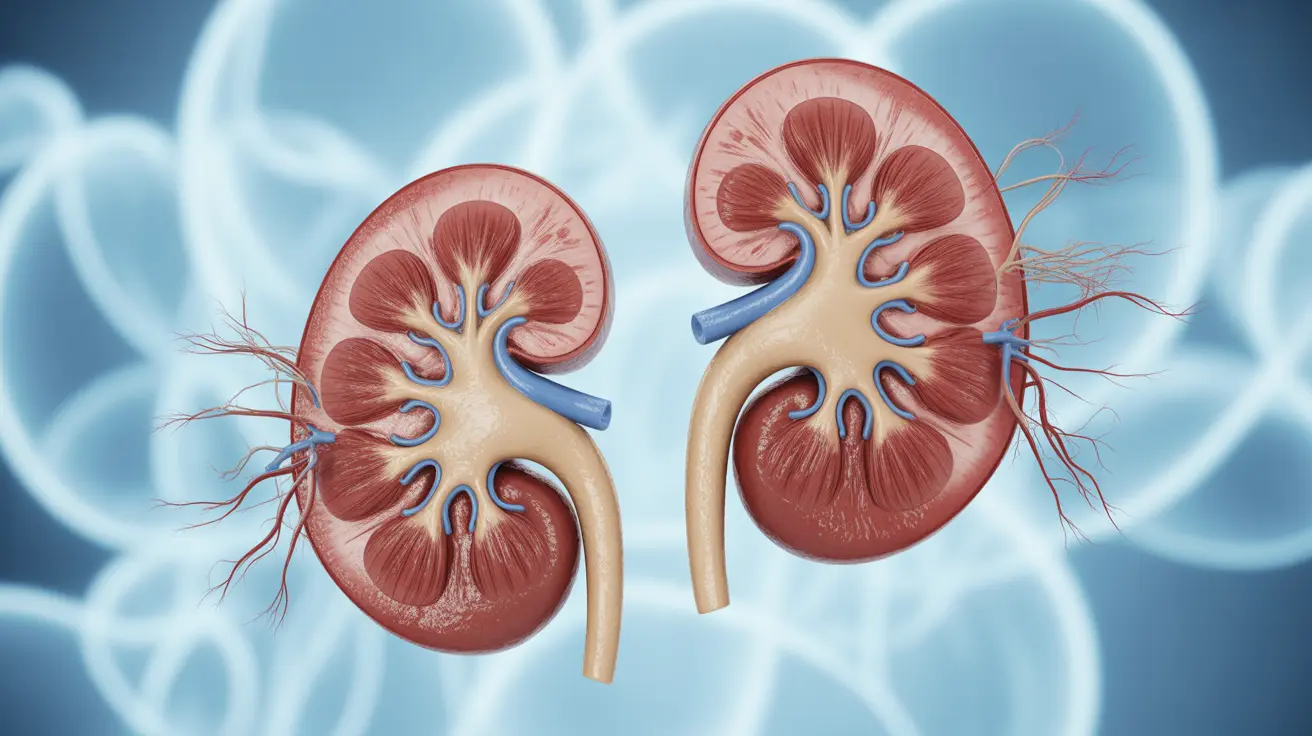Many people wonder if drinking alcohol can cause kidney pain, and the answer is yes - alcohol consumption can indeed lead to kidney discomfort and potential damage. Understanding this connection is crucial for maintaining kidney health and preventing serious complications.
The relationship between alcohol and kidney pain involves various mechanisms, from dehydration to direct organ stress. Let's explore why this happens and what you can do to protect your kidneys while making informed decisions about alcohol consumption.
How Alcohol Affects Your Kidneys
Alcohol impacts kidney function in several significant ways. As a diuretic, it increases urine production and can lead to dehydration, putting additional stress on these vital organs. The kidneys must work harder to maintain proper fluid balance and filter toxins from your body when you consume alcohol.
Direct Effects on Kidney Function
When you drink alcohol, your kidneys face immediate challenges:
- Increased blood flow and filtration demands
- Disrupted hormone production that regulates kidney function
- Elevated blood pressure that stresses kidney tissues
- Altered electrolyte balance affecting kidney performance
Common Symptoms of Alcohol-Related Kidney Pain
Recognizing kidney pain related to alcohol consumption is important. Key symptoms include:
- Dull aching in the lower back or sides
- Sharp pain below the rib cage
- Increased pain when touching the affected area
- Pain that worsens with movement
- Associated symptoms like nausea or frequent urination
Risk Factors and Complications
Several factors can increase your risk of experiencing alcohol-related kidney problems:
- Regular heavy drinking
- Pre-existing kidney conditions
- Dehydration
- Poor overall health
- Certain medications that interact with alcohol
Long-term Consequences
Continued heavy alcohol use can lead to serious kidney complications:
- Chronic kidney disease
- Increased risk of kidney stones
- Permanent kidney damage
- Higher susceptibility to kidney infections
- Reduced kidney function over time
Prevention and Protection Strategies
To protect your kidneys while consuming alcohol, consider these important steps:
- Stay well-hydrated by drinking water between alcoholic beverages
- Limit alcohol intake to moderate levels
- Maintain a healthy diet rich in kidney-supporting nutrients
- Monitor your blood pressure regularly
- Get regular check-ups to assess kidney function
When to Seek Medical Attention
Don't ignore persistent kidney pain after drinking. Seek immediate medical care if you experience:
- Severe or persistent pain lasting more than 24 hours
- Blood in urine
- High fever with flank pain
- Difficulty urinating
- Extreme nausea or vomiting
Frequently Asked Questions
- Can drinking alcohol cause kidney pain and what are the common symptoms to watch for?
Yes, alcohol can cause kidney pain through dehydration and direct organ stress. Common symptoms include lower back pain, flank tenderness, and pain below the rib cage. Watch for associated symptoms like changes in urination patterns or nausea.
- How does alcohol lead to dehydration and increase the risk of kidney stones or infections?
Alcohol acts as a diuretic, increasing urine production and causing dehydration. This concentrated urine can lead to crystal formation (kidney stones) and creates an environment where bacteria can thrive, increasing infection risk.
- What are the long-term effects of heavy alcohol use on kidney function and health?
Heavy alcohol use can lead to chronic kidney disease, permanent organ damage, increased blood pressure, and reduced filtering capacity. It may also cause irreversible changes to kidney tissue and function over time.
- How can I prevent kidney pain or damage related to alcohol consumption?
Prevent kidney issues by drinking water between alcoholic beverages, limiting alcohol intake, maintaining a healthy diet, and staying hydrated. Regular exercise and monitoring blood pressure also help protect kidney health.
- When should I see a doctor if I experience kidney pain after drinking alcohol?
Seek medical attention if you experience severe or persistent pain lasting over 24 hours, blood in urine, high fever, difficulty urinating, or extreme nausea. These symptoms could indicate serious kidney problems requiring immediate care.




